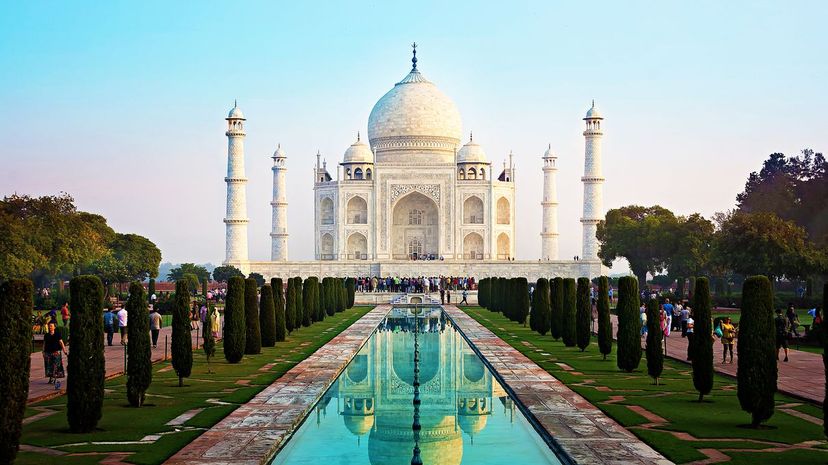
About This Quiz
The Antiquities Act of 1906 created the power to designate sites as national monuments, and today, in the U.S. there are 129 areas recognized as protected national monuments. On top of that, the United States National Historic Landmark Program began designating specific sites as national historic landmarks in 1960, and now there are close to 2,600 historic monuments in the country. On top of that, the United States is just one of 195 countries in the world, and each one has a slew of unique monuments.
There are ancient monuments, modern monuments, natural monuments, unexplained monuments, religious monuments, pop-culture monuments and a variety of other monuments around the world. If you visit Paris, you will be surrounded by some of the most popular monuments in the world. If you visit Rome, it will be almost impossible to look across the street without seeing ancient historic structures. If you walk around Greece or Egypt, you might feel like you've been transported in time.
Monuments come in all shapes, sizes and forms, and the stories behind them range widely. They're some of the most important reasons to travel, and they add a touch of humanity to Earth. How many monuments have you seen? What monuments do you plan to visit? And can you identify all of these iconic monuments? Put your skills to the test here.

The Terracotta Army are stone soldiers that protect the First Emperor of China in the afterlife. There are 8,000 soldiers, more than 100 chariots and several hundred horses. The monumental army was buried with the emperor in 209 B.C.
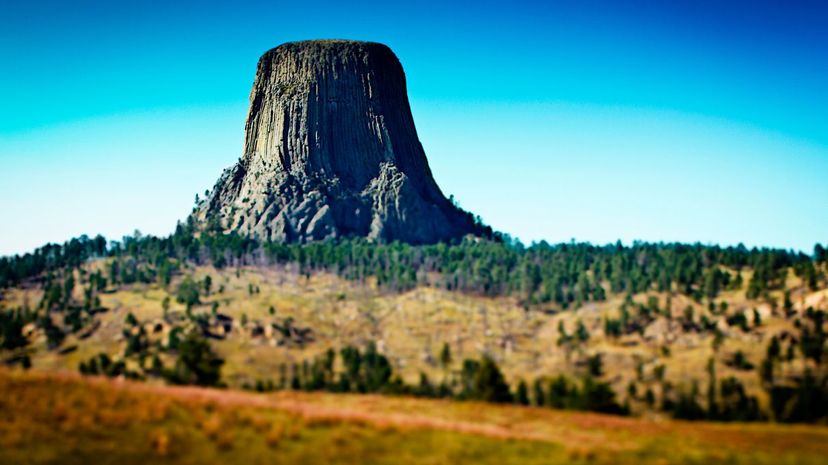
The Antiquities Act of 1906 allowed for the designation of national monuments, and in 1906 President Theodore Roosevelt exercised the act to designate Devils Tower in Wyoming the first U.S. National Monument.
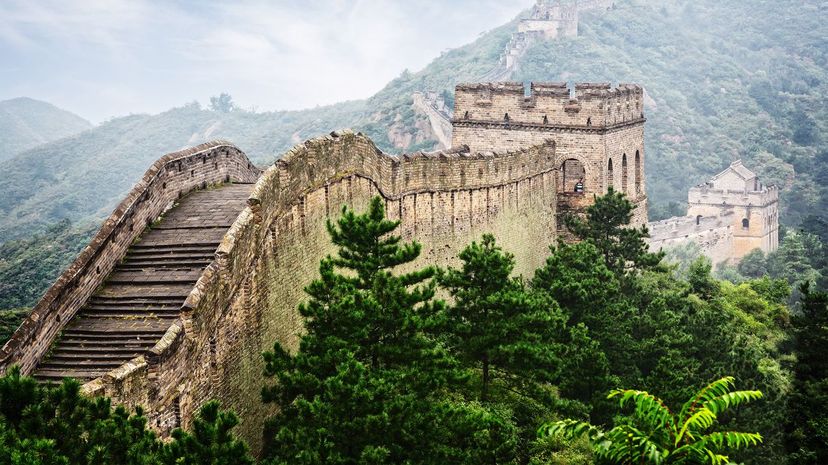
The very first walls built in the Great Wall system date back to the 7th century B.C., but the Ming dynasty built about 5,500 miles of wall between 1368 and 1644. The entire wall ranges more than 13,000 miles.
Advertisement
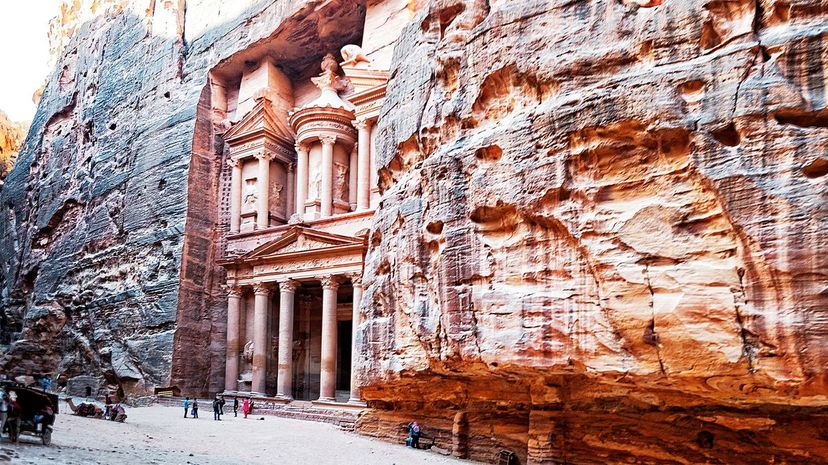
The archaeological city of Petra in Jordan holds some of the most fascinating sites on Earth, and one of them is the Al-Khazneh Temple. The temple built by ancient Arabs is thought to have been a mausoleum for King Aretas IV.
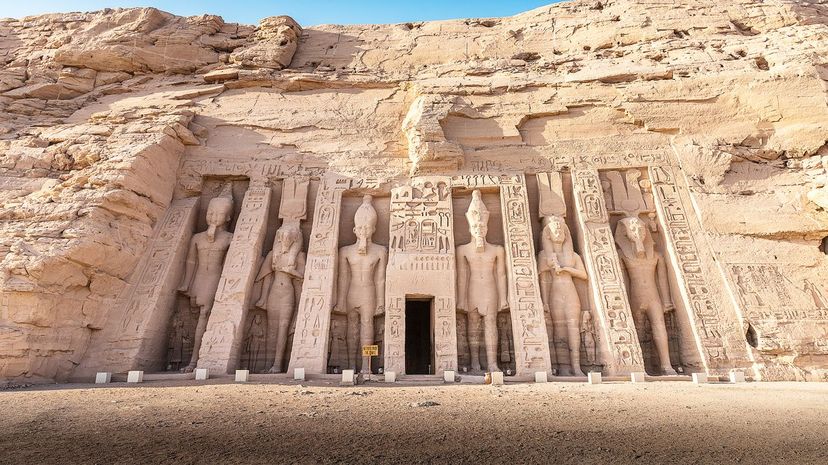
Everybody knows that you can visit the Nile River, the Great Sphinx and the Great Pyramid of Giza just outside of Cairo, but close to Egypt's border with Sudan, you can find the Abu Simbel temples, which honor Ramses II and Queen Nefertari.
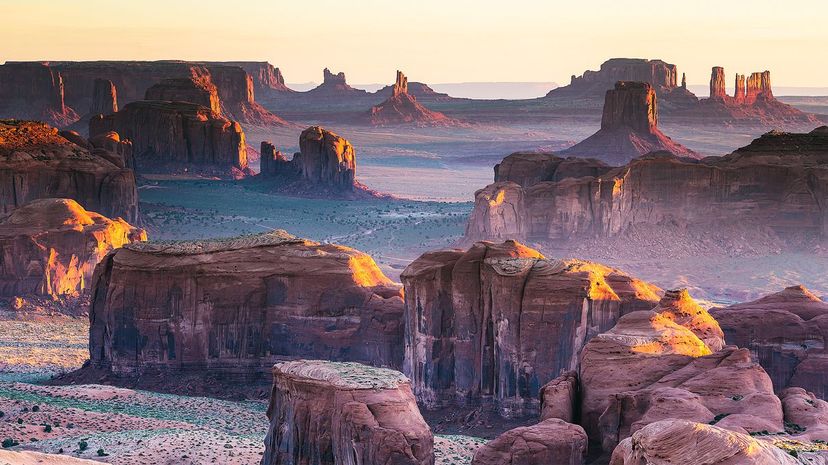
Thanks to Hollywood and Western director John Ford, you've likely seen an image of Monument Valley at least once in your lifetime. The area is clustered with natural landforms and is home to some of the most iconic vistas in the country.
Advertisement
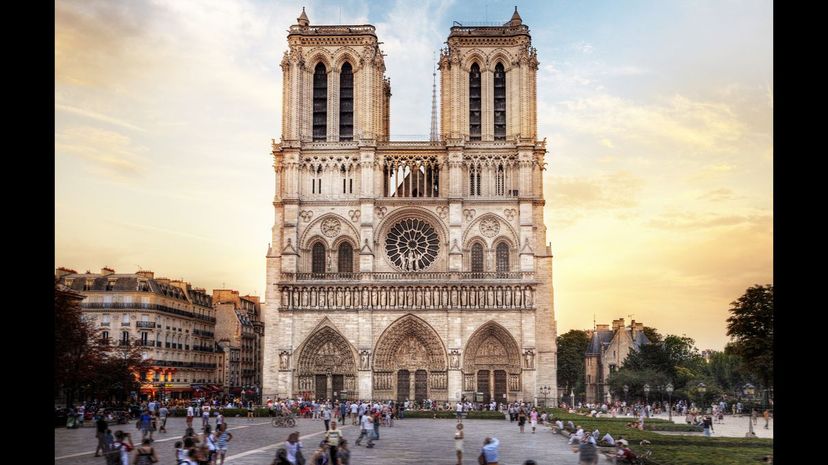
In a city full of some of the most iconic monuments in the world, the Notre-Dame de Paris reigns as the most visited monument on Earth. Construction spanned from 1160 to 1260, and it's the location of several significant events, like Napoleon's coronation as Emperor of France in 1804.

Washington, D.C. is home to numerous monuments and some of the most famous ones, like the John F. Kennedy Eternal Flame or the Tomb of the Unknown Soldier, are located in nearby Arlington, VA. The Iwo Jima Memorial can be found in the same area, just outside the cemetery's gate.
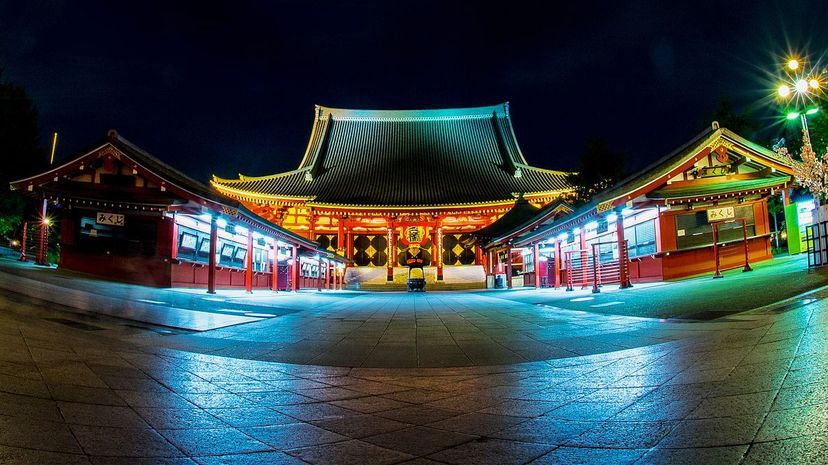
More than 30 million people a year flock to Asakusa, Tokyo to visit Senso-ji, which is a Buddhist temple and Tokyo's oldest. The site was completed in 645 A.D. and is dedicated to bodhisattvas, who are people on a path towards Buddhahood.
Advertisement
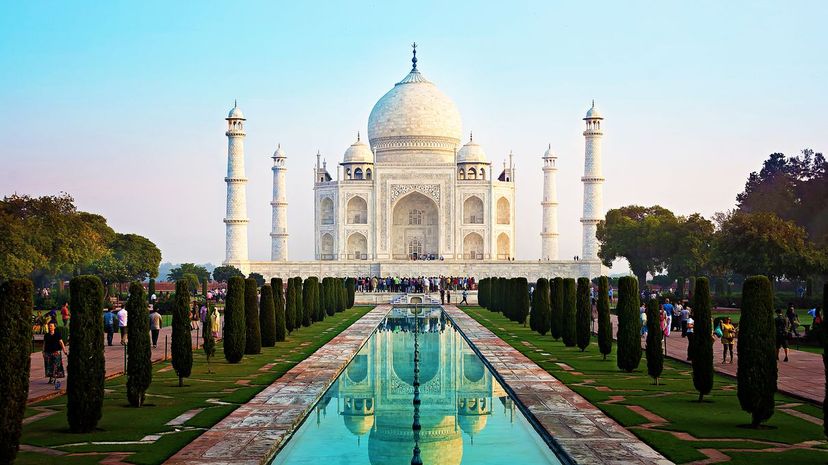
The Taj Mahal was completed in 1643 and stands to honor the wife of Shah Jahan, who died giving birth to the couple's 14th child. Today, the monument is one of the world's most visited, attracting millions of tourists a year.
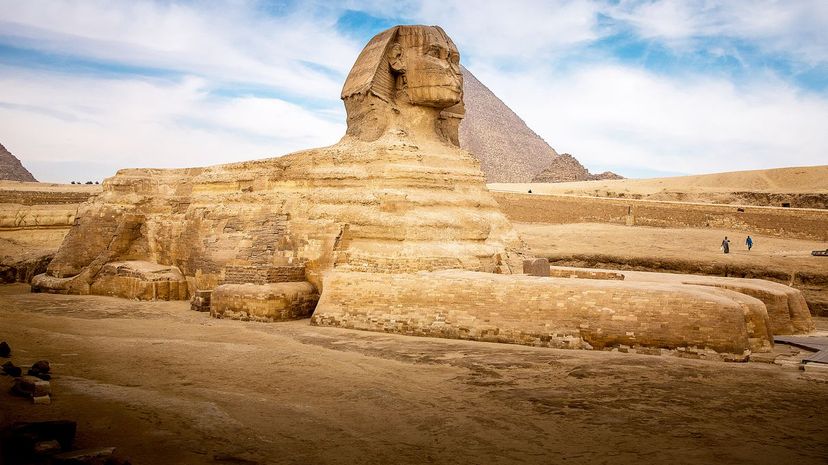
Like all the wonders of Ancient Egypt, the Great Sphinx is covered in mystery, but we do know the mystical creature has the body of a lion and the head of a human. It's said to have been built in 2500 B.C. for the Pharaoh Khafre.
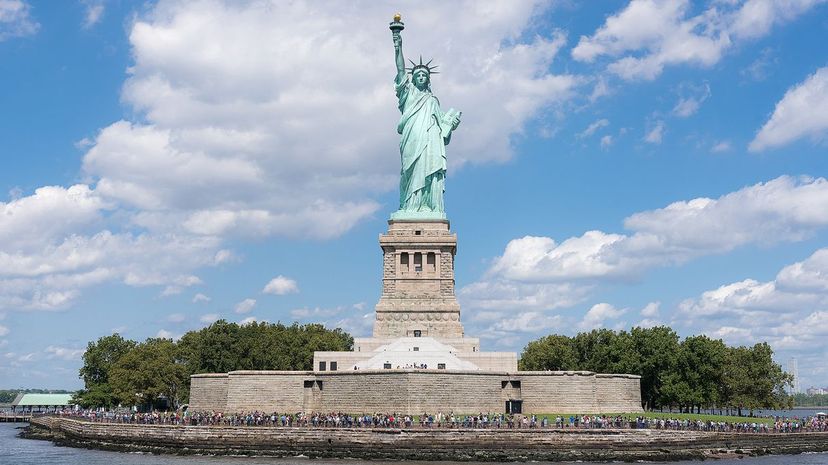
The Statue of Liberty depicts the Roman goddess of liberty, Libertas, and it was given to the U.S. as a gift from the people of France, who supported the Union during the American Civil War. Only 240 people can climb the statue per day, and access to the balcony around the torch is barred.
Advertisement
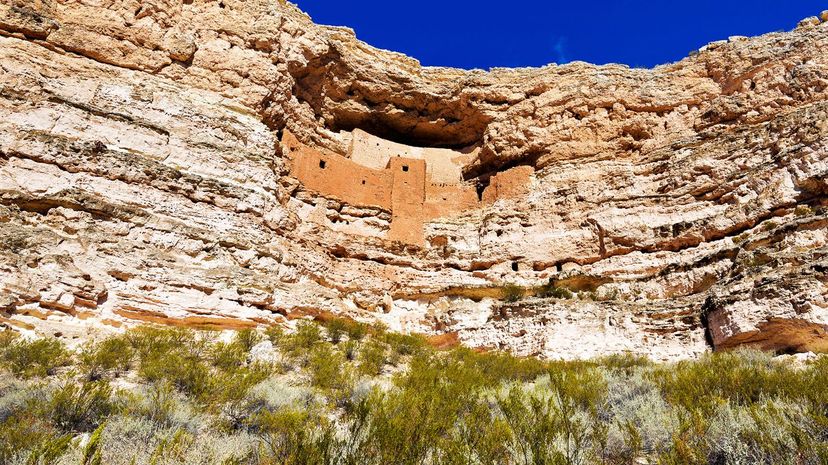
Although the name implies that Montezuma lived in this castle, he didn't. The castle functioned like an apartment complex for the Sinagua people who lived in modern-day Camp Verde, Arizona. Montezuma had nothing to do with the castle and lived nowhere close to it.
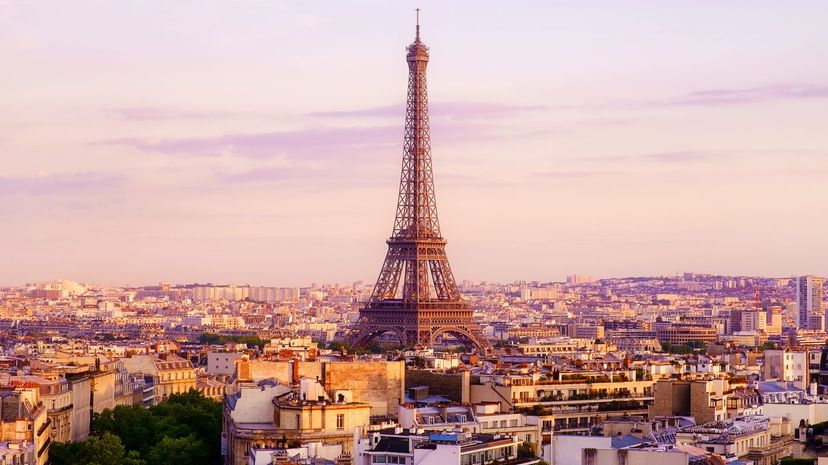
The Eiffel Tower was constructed in two years to serve as the entrance to the 1889 World's Fair, and although it wasn't enthusiastically received at first, it has become one of the most iconic symbols of French culture in the world.
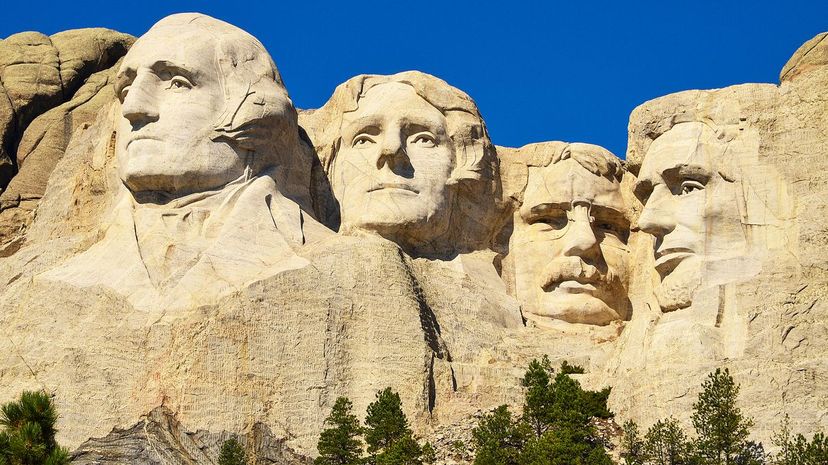
Mount Rushmore depicts George Washington, Thomas Jefferson, Abraham Lincoln and Theodore Roosevelt and protrudes from the Black Hills in South Dakota. The project took 15 years to build and only stopped because of low funds. The original goal was to depict all presidents from head to waist.
Advertisement
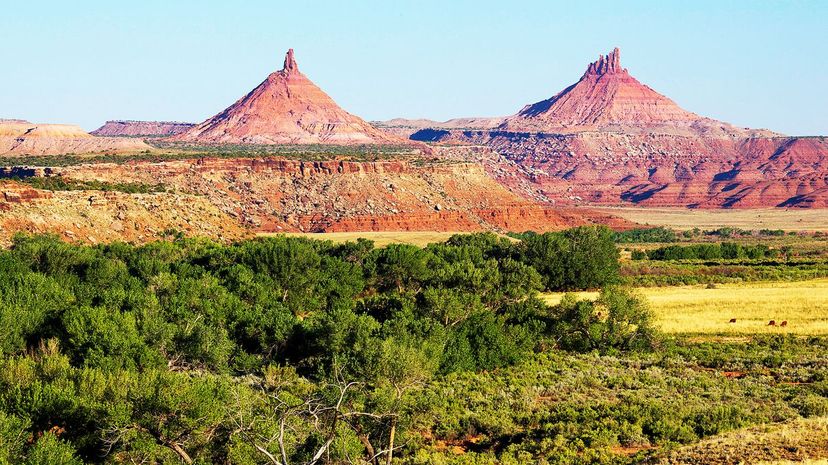
In 2016, President Barack Obama designated the land that these twin buttes stand on as a national monument. They reach 8,700 feet tall and are located in San Juan County, Utah. The entire monument area spans more than 1 million acres.
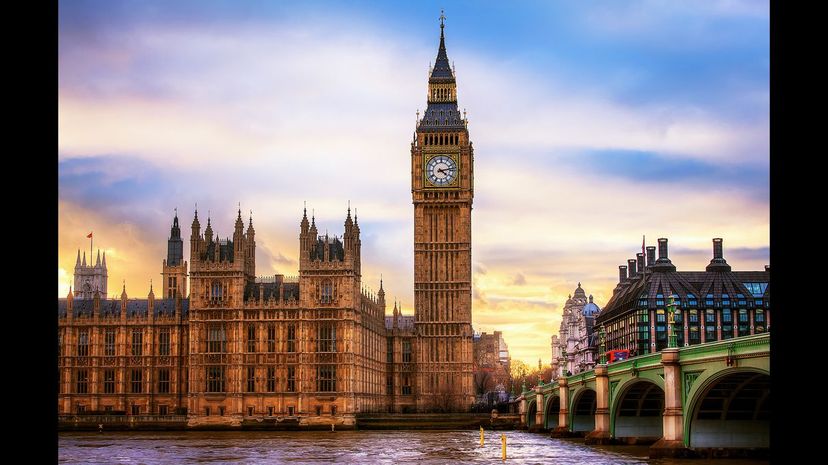
The Elizabeth Tower was completed in 1859 and stands at the north end of London's Palace of Westminster. The bell inside the tower was originally going to be named in honor of Queen Victoria but was eventually named Big Ben.
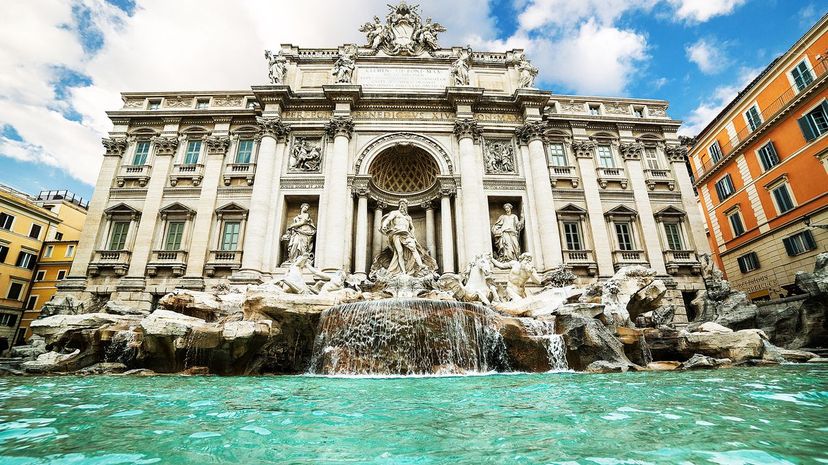
Rome's Trevi Fountain might be the most famous in the world and is often portrayed in pop culture. The fountain stands 86 feet tall and 161 feet wide and was completed in 1762. Coins thrown into the fountain are supposed to be thrown with the right hand over the left shoulder.
Advertisement
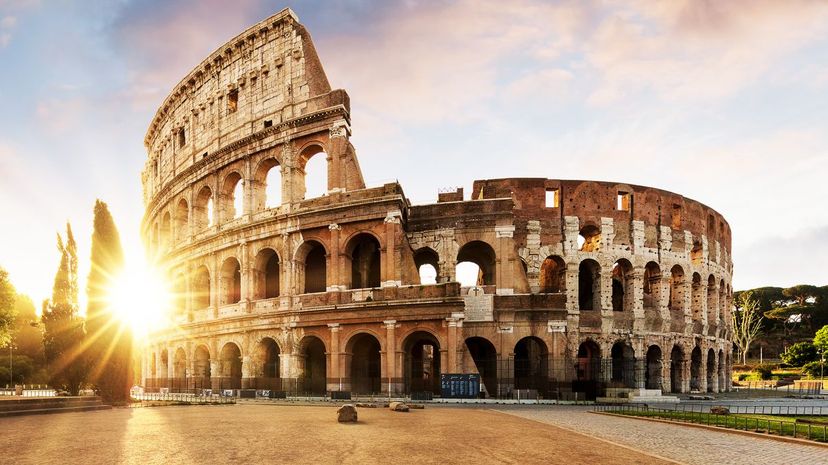
The Colosseum was built in 80 A.D. and today sits in the center of Rome. The massive structure could hold up to 80,000 people and was used for a variety of medieval entertainment like animal hunts, gladiator fights and battle re-enactments.
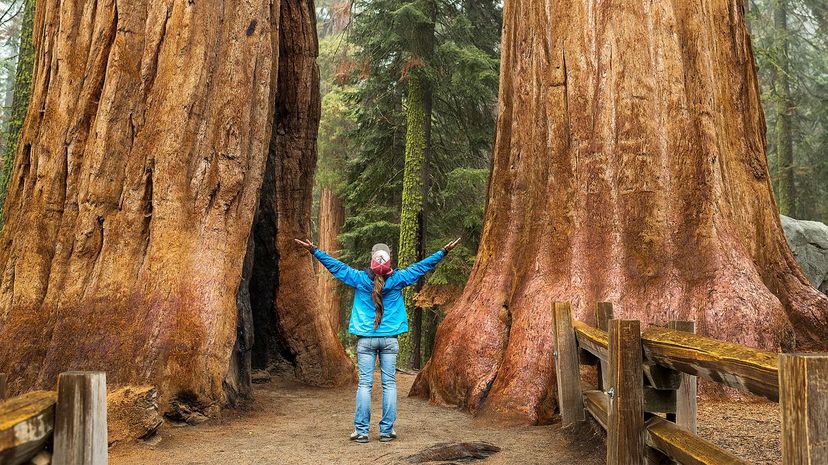
These giants can grow for 3,000 years and feature bark that's three feet thick and branches that are eight feet in diameter. One sequoia can span 35 feet wide and stand more than 300 feet tall. You can find dozens of these behemoths at the Giant Sequoia National Monument in California.
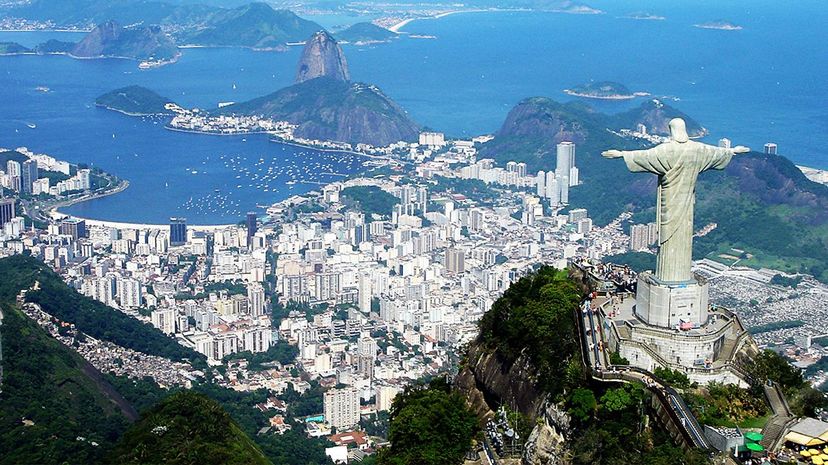
Christ the Redeemer overlooks Rio de Janeiro and stands 98 feet tall on the peak of Corcovado Mountain. His arms stretch 92 feet wide. The statue was completed in 1931 and is listed as one of the Seven New Wonders of the World.
Advertisement
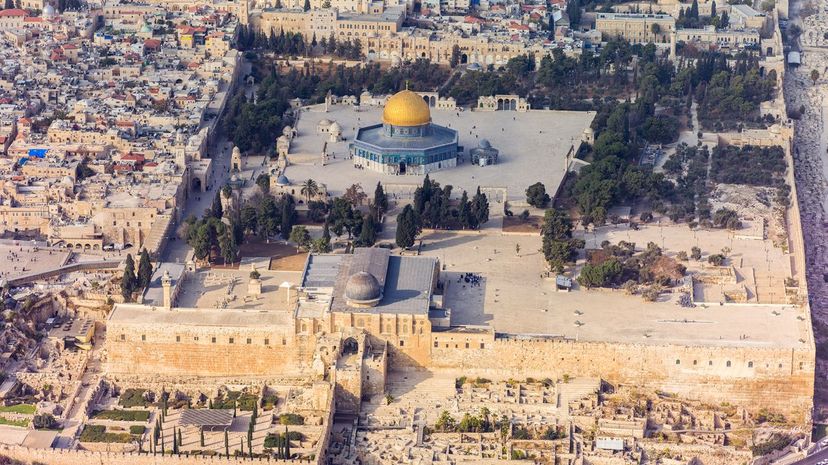
In Hebrew, Temple Mount is known as the "Mount of the House of God," and Muslims know it as "the Noble Sanctuary." It's the site of the al-Aqsa Mosque and Dome of the Rock, and the entire complex is one of the holiest places on Earth.
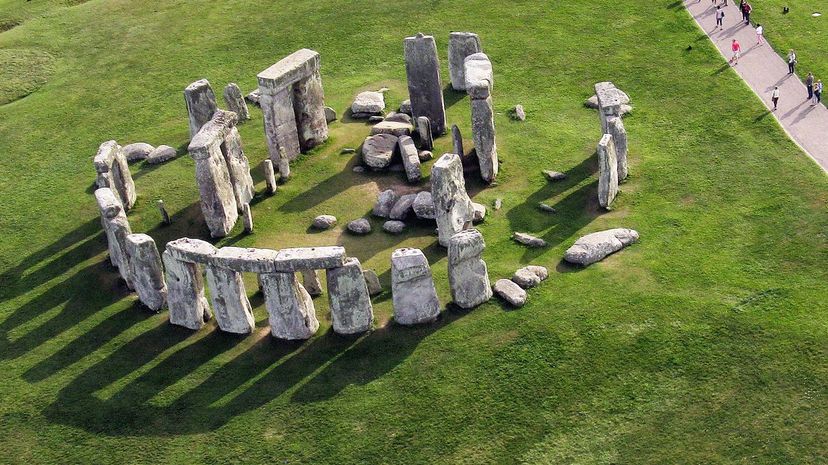
Stonehenge legends and theories have been circulating for centuries, and we don't fully understand the site. It may have been built in 3000 B.C. or it may have been built in 2000 B.C. It may be a burial site. It may not. We do know it is a global icon of British culture.
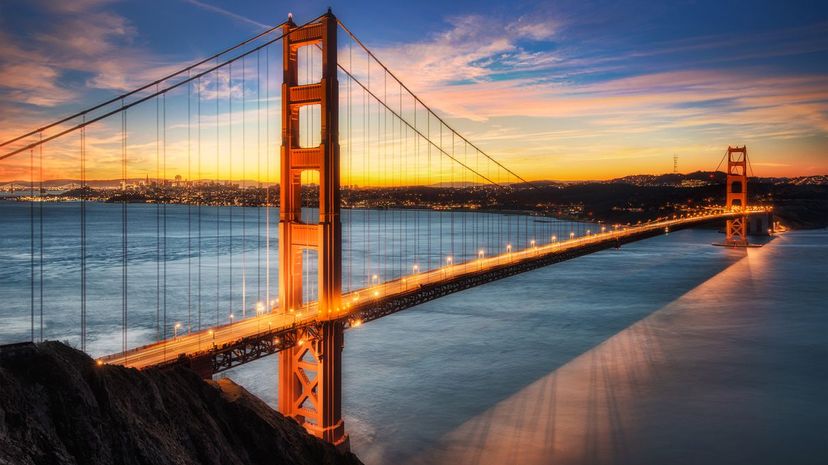
The Golden Gate Bridge opened in 1937 and is the world's longest and tallest suspension bridge. It spans 4,200 feet and crosses the Golden Gate Strait. It's also considered to be one of the most beautiful and photographed bridges in the world.
Advertisement
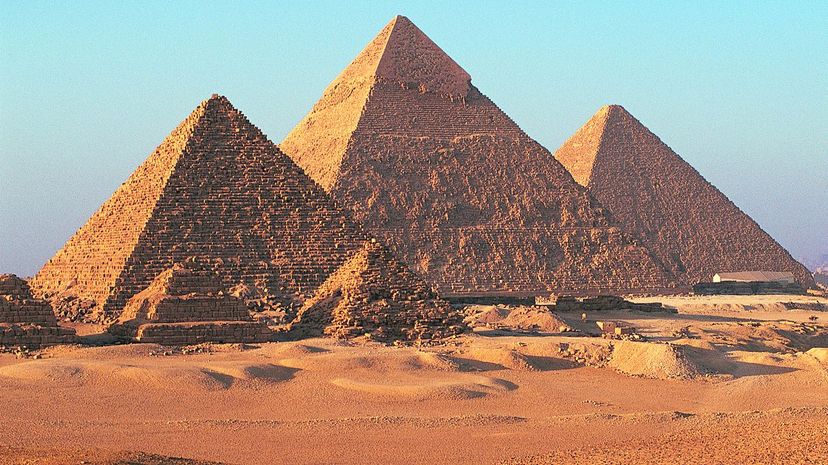
The Great Pyramid of Giza was constructed in 2560 B.C. and is the oldest of the Seven Ancient Wonders of the World. The pyramid contains over 2 million stones weighing more than 6 million tons. No one can agree on how the structure was built, but it likely took hundreds of thousands of laborers.
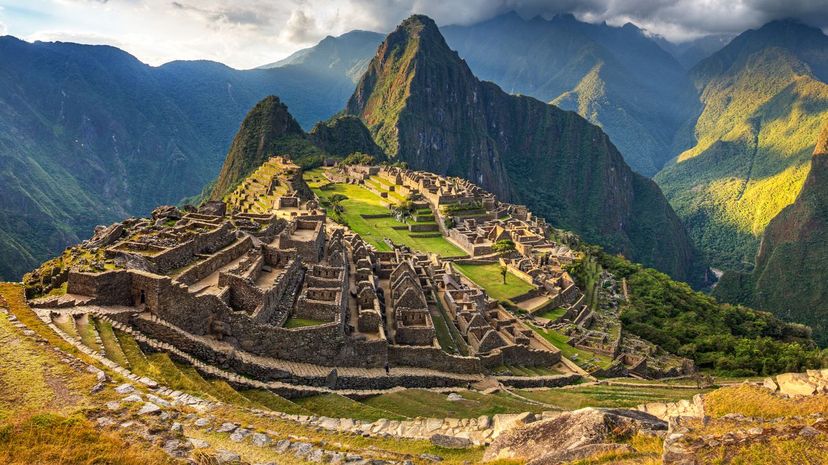
Machu Picchu consists of about 200 buildings and was built by the Incas in the 15th century. It was abandoned in the 16th century and wasn't again discovered until the early 20th century. It's located above the Sacred Valley in Peru.
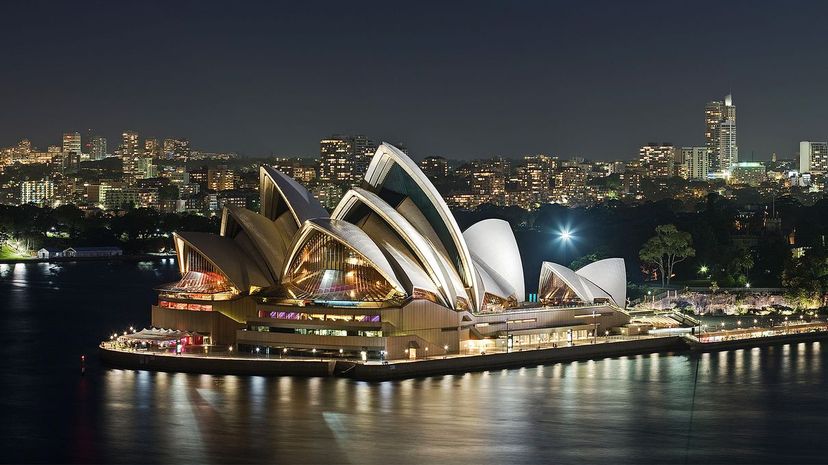
Residence to the Sydney Theater Company and Sydney Symphony Orchestra, the Sydney Opera House is one of the world's most recognizable theaters in the world. Aside from the million performance attendees each year, about 350,000 people visit just to tour the venue.
Advertisement
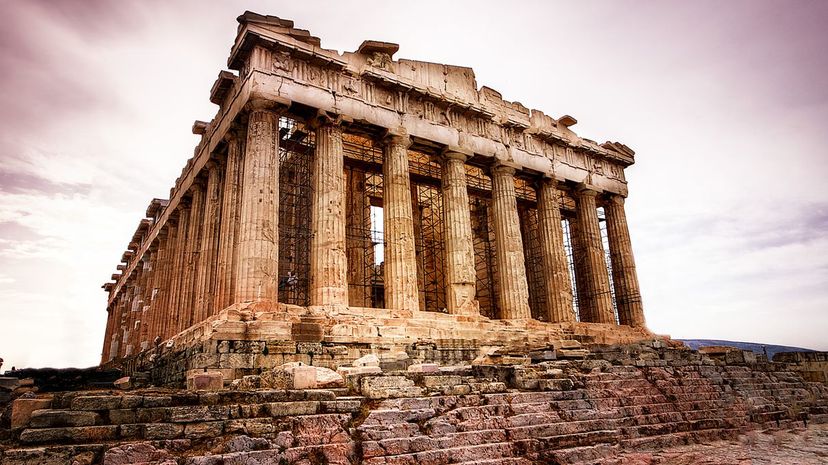
Athena is the Greek goddess of wisdom and warfare, and the people of Athens dedicated the Parthenon to her. It was completed in 438 B.C. Today, it's one of the most important Greek structures, and at its time of use, it functioned as the city's treasury.
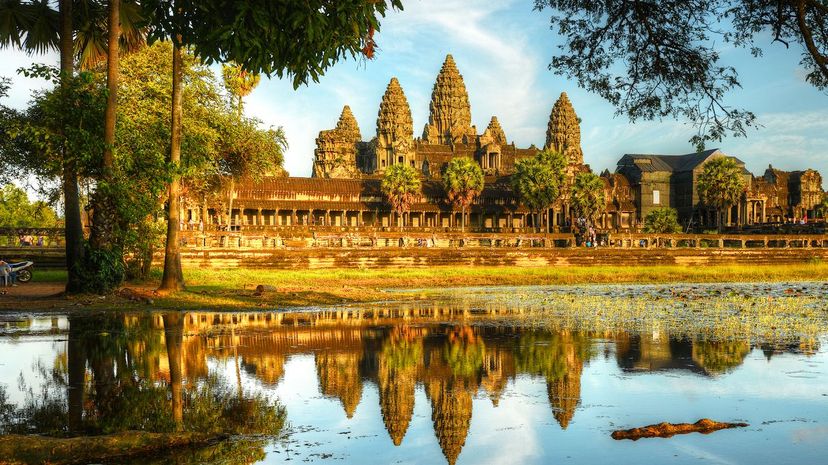
Angkor Wat is located in Siem Reap, Cambodia and was built in the 12th century by the Khmer Empire. The temple was built to honor the Hindu god Vishnu, who was known as the god of protection. Tourism jumped from 7,000 visitors in 1993 to more than 2 million in 2013.
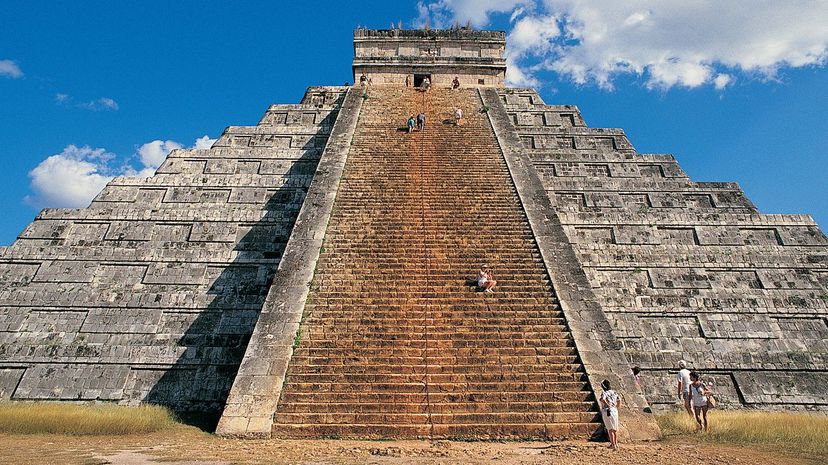
This structure is also known as the Temple of Kukulcan and is a 98-foot step pyramid located in the center of Chichen Itza, which is an Ancient Mayan city located in the modern-day Yucatan State in Mexico.
Advertisement
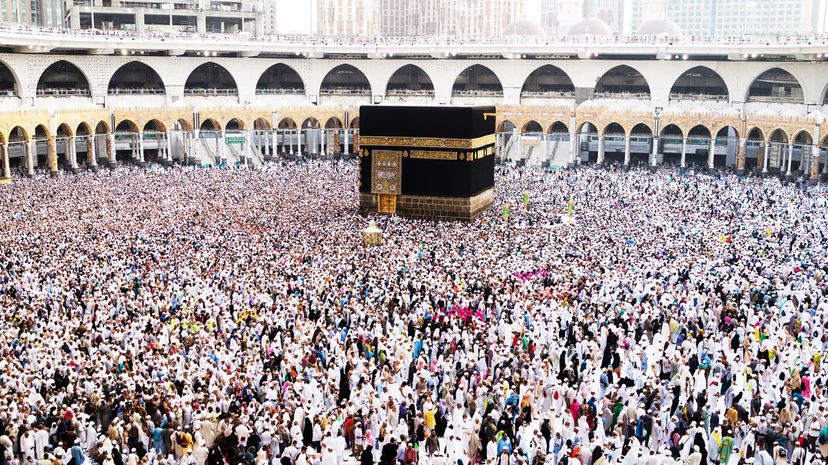
The Kabaa is the most sacred site in Islam. All Muslims are required to visit the site at least once in their lives, and all Muslims, wherever they are in the world, are expected to face the Kabaa during prayer.
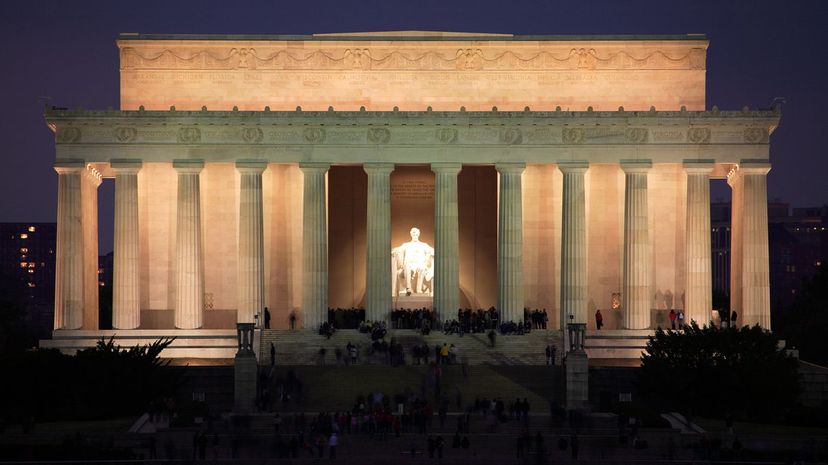
The Lincoln Memorial was built between 1914 and 1922 and sits on the west end of the National Mall in Washington, D.C. More than 7 million people visit the monument each year, and it's open to the public 24 hours a day and seven days a week.
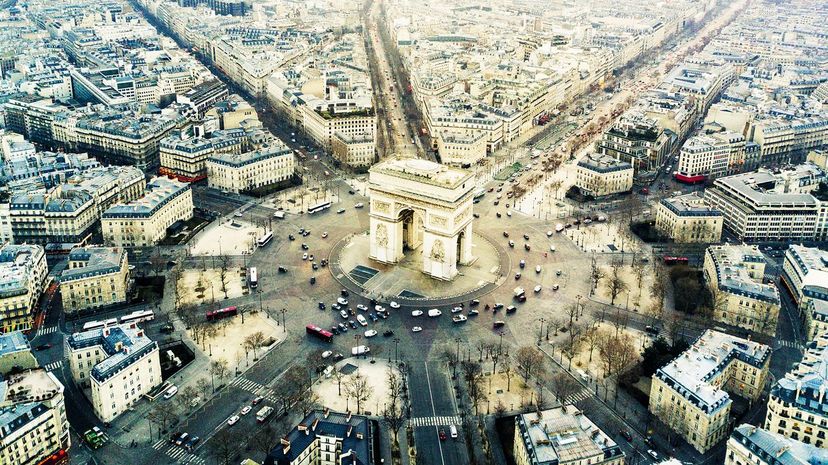
Construction on the monument began in 1806 at the height of Napoleon's wealth but wasn't completed until 1836. Underneath the Arc sits the Tomb of the Unknown Soldier from WWI and the first eternal flame memorial in Europe.
Advertisement
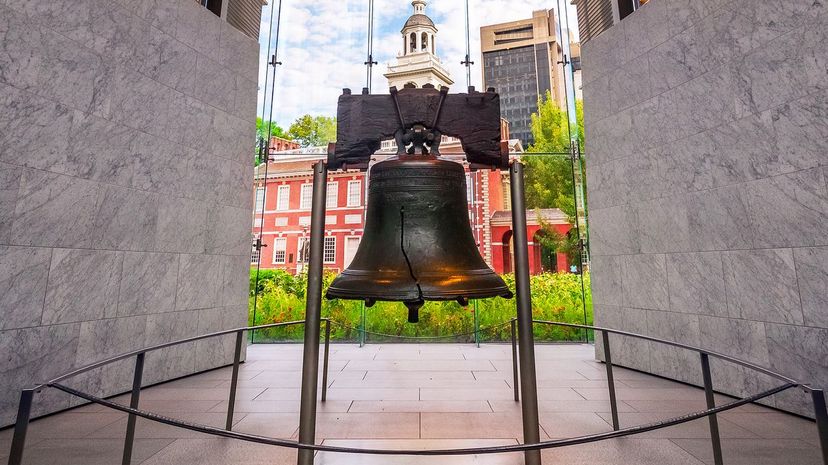
The Liberty Bell used to hang in the steeple of Independence Hall in Philadelphia but is now on display at Independence National Historic Park. A false story about the bell being rung on July 4, 1776 to declare America's independence propelled the object to superstardom.
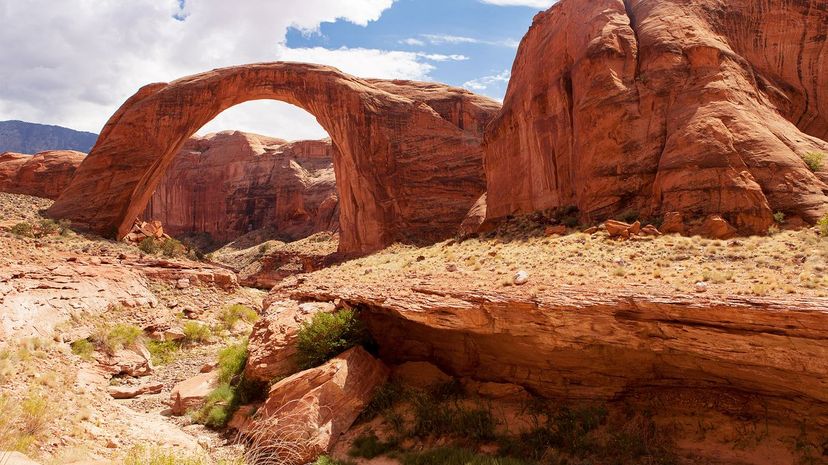
It'll take a two-hour boat ride and a one-mile hike to reach Rainbow Bridge, but it's one of the most accessible large arches in the world. It spans 234 feet and is 40 feet thick and 30 feet wide. Southern Utah has larger arches, but they are not considered bridges.
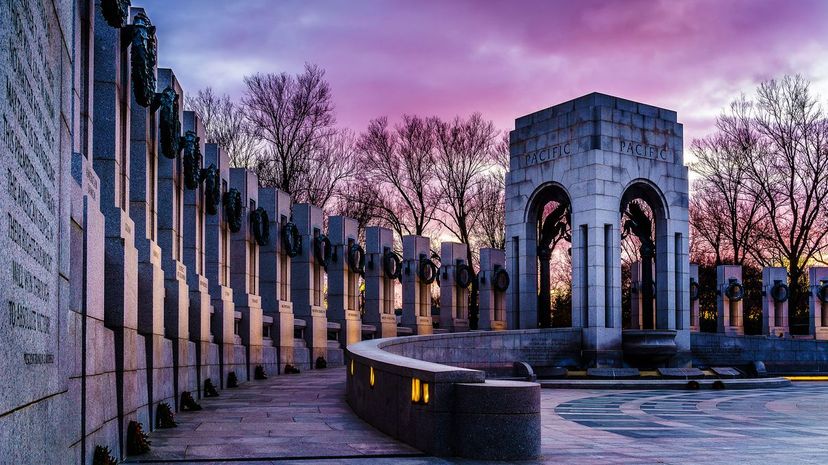
The World War II Memorial was dedicated by George W. Bush in 2004, and it consists of 56 pillars, two arches and a fountain. It's located on the National Mall and is visited by several million people each year.
Advertisement
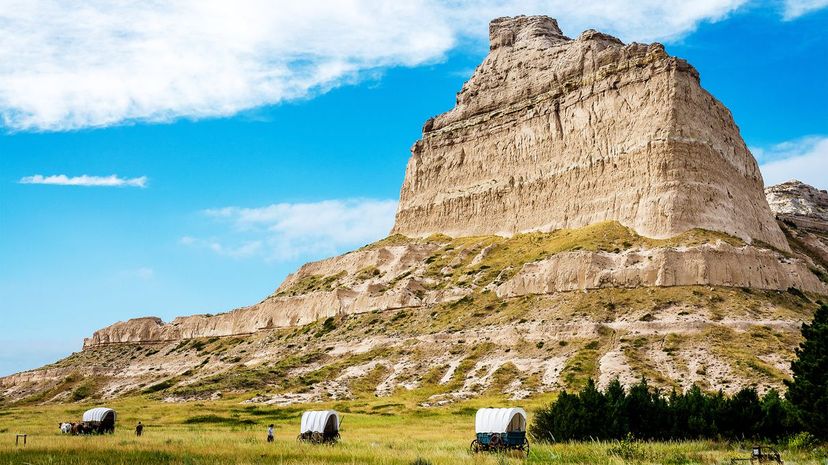
The Scotts Bluff National Monument in Nebraska consists of prairies, historic trails and towering rock structures. More than a quarter of a million pioneers crossed the bluff during westward expansion, and the structure is frequently mentioned in traveler journals of the time.
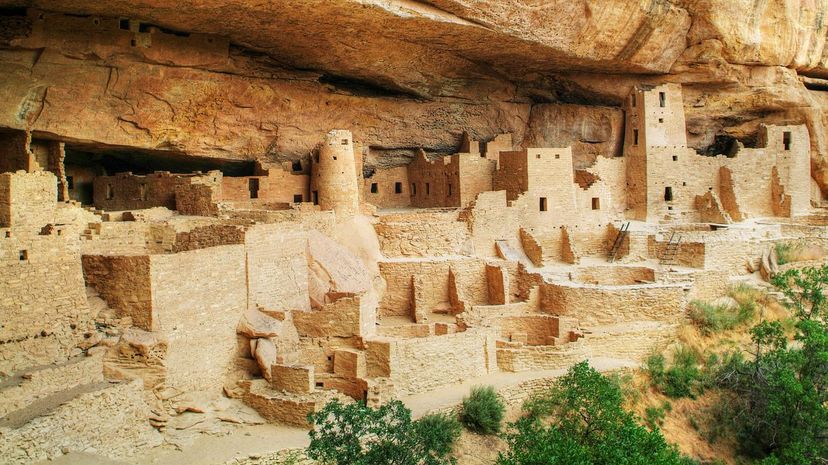
The Cliff Palace is located in Mesa Verde National Park in Colorado, and it was built by Ancestral Puebloans in the 12th century. The palace had 150 rooms and could house 100 people, but it was abandoned in 1300.
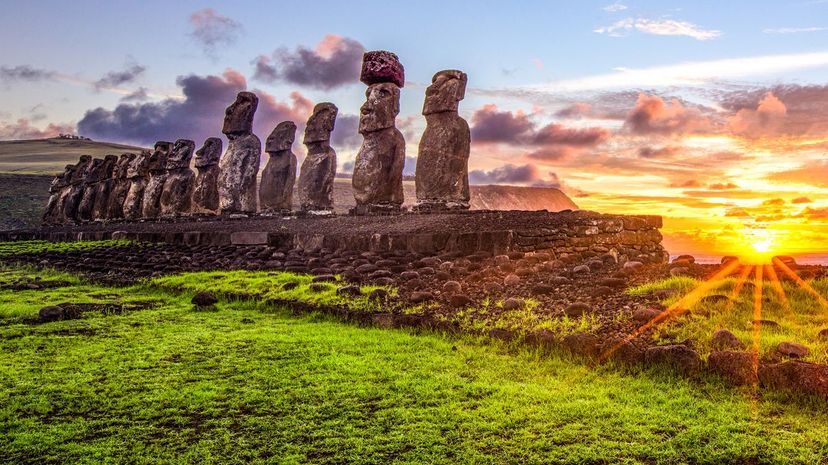
Polynesians settled the Chilean Island located in the Pacific Ocean in about 1200 A.D., but by 1877, the native population totaled just 111 people. A total of 887 statues have been discovered on the island, and they were carved between 1100 and 1680 A.D.
Advertisement
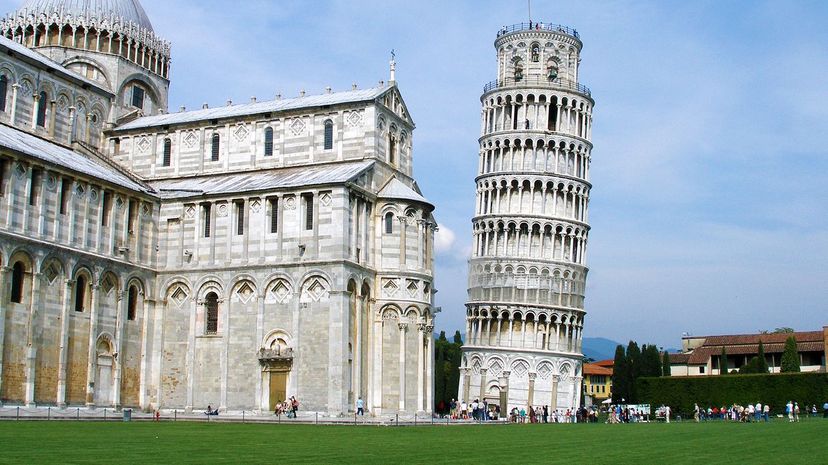
We do not know whether the Leaning Tower of Pisa will actually ever fall, but some experts say it only has about 200 years left. Other experts say restoration efforts will allow it to stand forever. Nevertheless, it's one of the most famous structures in the world.